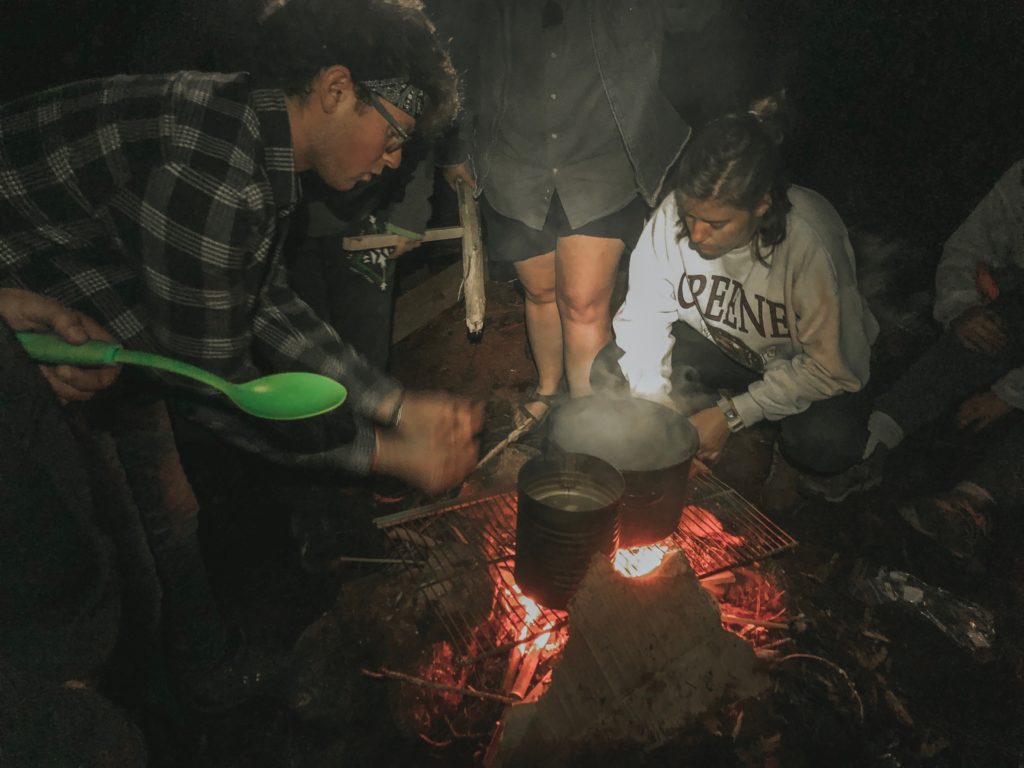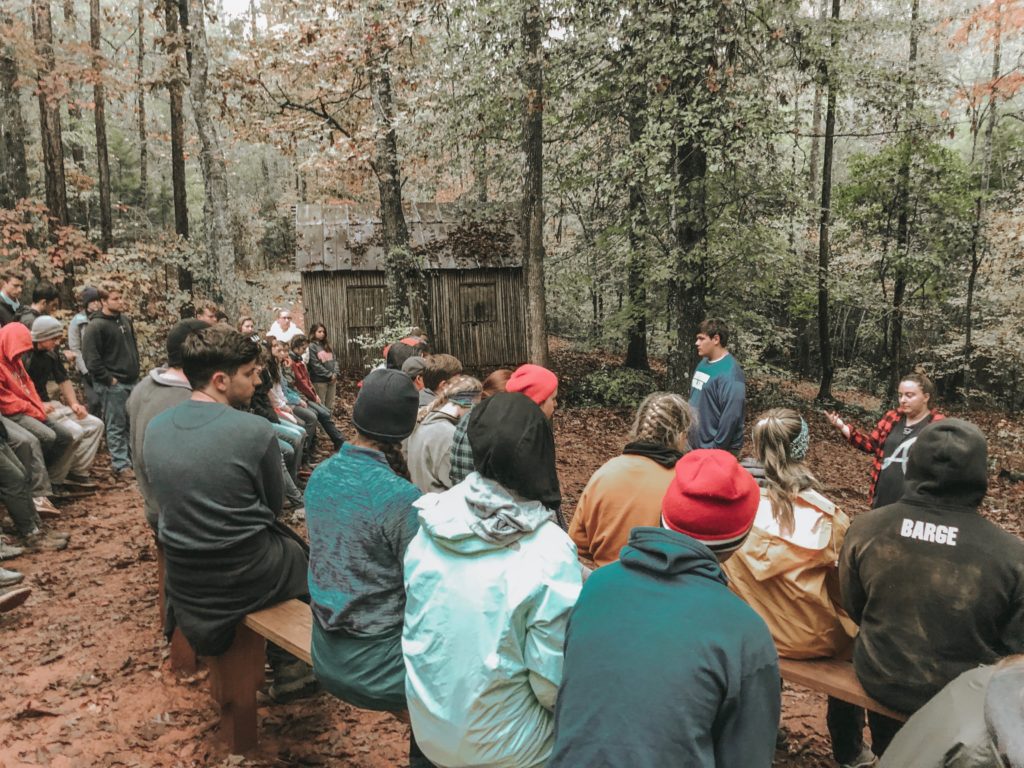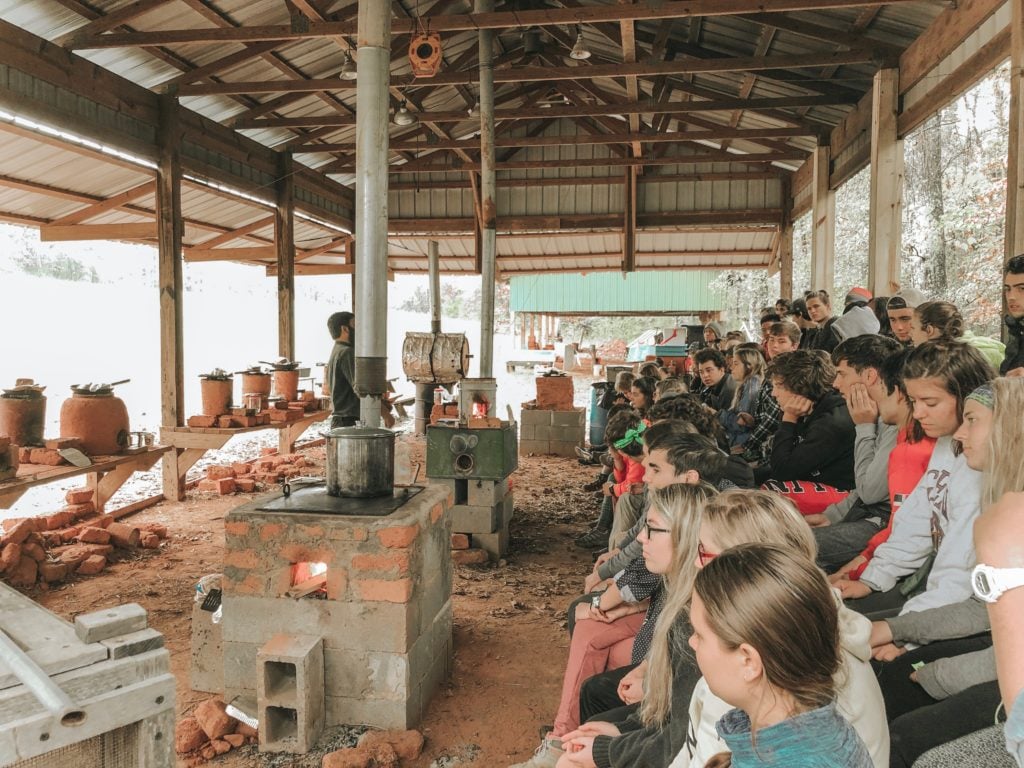Sit back, take a moment, and imagine for a second that your current identity no longer defines you. Your money, your privilege, your livelihood, your innocence, your rights as an American have all been stripped away. You, (insert name here), are now a Venezuelan refugee. You and your family are on the run from your crisis-stricken country, carrying only the clothes on your back and the little dignity you have left. Each day is a struggle, a gamble – your entire being is bent only toward finding food and shelter to keep your family safe.
This past week, at SIFAT (Servants in Faith and Technology) in Lineville, Alabama, the Fellows got a glimpse into what it looks and feels like to be a Venezuelan refugee on the run, living a life of uncertainty and alienation. We were ushered into empathy. We experienced and empathized with the hunger and food insecurity that 85% of the world’s population deals with daily. We embraced what living in the villages were like, sleeping in huts and learning how to do life with the little resources we had. We interacted with an understanding of what life lived in the slums could be like, learning and experiencing what it looks and feels like to have our morals tested and our boundaries stretched. Over the course of the two days we spent at SIFAT, we were forced time and time again to put ourselves in the shoes of the millions across the world that we may not ever see, but who are still struggling to survive. This week allowed for further understanding, mindset and empathy.

As many of us come from American middle-class families, it was easy to become overwhelmed by guilt and shame for our own privilege after going through such eye-opening experiences. However, we realized that we were put in these situations not to feel intense guilt, but to be spurred into action. 1 John 3:17 tells us, “ If anyone has the world’s goods and sees his brother in need, yet closes his heart against him, how does God’s love abide in him? Little children, let us not love in word or talk but in deed and in truth.” So often, we see or hear about those in need and simply choose to pray for them. While this is most certainly necessary, we learned that in order to meet spiritual needs, we must first try to meet physical needs. We had the chance to learn about appropriate technology, which is using the skills and materials available to make life easier. We were able to learn how to use a rocket stove to efficiently cook food, as well as, how to filter water effectively. SIFAT not only opened our eyes to the real problem that is poverty, but they also equipped us with the means and the knowledge to actually make a physical difference.

Over the course of this experience, our class was both overcome with gratitude and burdened to be the change. Having a glimpse first-hand into the effects of poverty, we are now challenged to empathize and walk alongside the billions that struggle with poverty locally, as well as, around the world.
Blessings,
Class XIII
